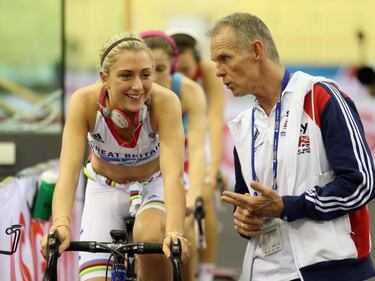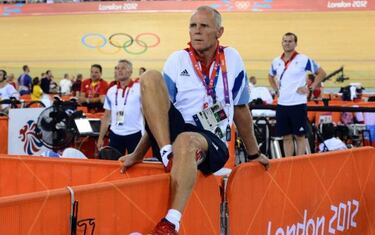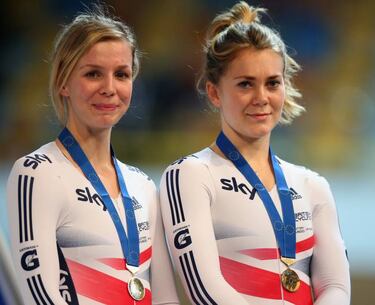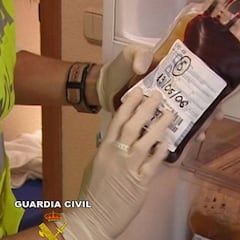British Cycling strongly criticised for "medal factory" approach
For years the sporting world has wondered about the secret behind Britain Cycling's years of domination and unchallenged success.</br><a title="Floyd Mayweather vs Conor McGregor live stream online" href="https://en.as.com/en/2017/08/26/other_sports/1503765027_757757.html">Floyd Mayweather vs Conor McGregor</a>

For years the sporting world has wondered about the secret behind Britain Cycling's years of domination and unchallenged success. And if Wednesday's Cycling Independent Review (CIR) lacks the definitive answer, it shines a harsh spotlight on the sport's murkiest corners, where riders and back-up staff cowered in fear of challenging the authorities.
Britain Cycling's lack of proper workplace practices
Riders were issued with fierce admonishments for perceived failings and discouraged from developing interests outside cycling; staff were denied any form of personal development, and UK Sport, the government funding agency, looked the other way while more athletes stepped up to the winning podium.

The report is damning, indicating that all proper workplace practice was sacrificed to the drive for more medals and, as a direct consequence, further funding.
Although the culture was unchallenged for years, the CIR makes clear that alarm bells sounded long ago. One member of the World Class Programme (WCP) -- or "medal factory" as it has been labelled -- dated the problems to Beijing 2008 when eight Olympic gold medals delivered a cultural shift from success being an aspiration to a requirement.
Sutton the medal driver, but at what cost
Shane Sutton's subsequent removal from the team management for allegedly unacceptable behaviour led to a dip in results. But with his return as head coach, and with the advent of Team Sky to work side-by-side with the WCP in 2009, normal medal service was resumed. The link seemed clear and the Australian's position became untouchable.
The review suggests the WCP went from being "coach-led, athlete-centred" to "coach-led, coach-centred" with the divisive figure of "old-school" Sutton at its heart.

While his drive and dedication were widely admired, Sutton's colourful language was not, with women riders referred to as "Sheilahs" or worse and BMX riders sidelined.
A secret post-2012 British Cycling report highlighted difficulties despite the record 12-medal London haul. "The personal situation regarding interpersonal relationships/behaviours was untenable" and needed urgent address, it said.
Yet nothing was done and UK Sport received only a summary of the report, not its full findings.
Morale plummeted and, with Dave Brailsford's departure as British Cycling's performance director in 2014, Sutton was appointed technical director, a role to which most believed he was totally unsuited.

"SS did not operate in a way which was always appropriate for a modern work place, even if highly pressurised and at the pinnacle of international sporting competition," the report found. "Furthermore, SS should not have been placed into a leading management position within the WCP without appropriate support, guidance and training also being put in place for him."
Claims of bullying in British Cycling
Staff felt there was no point raising grievances because human resources "were complicit with Shane".
Eventually, the dropping of former World Championships medallist Jess Varnish from the WCP after her failure to qualify for the 2016 Olympics in Rio blew everything apart. Regarded as a "trouble-maker" and "ring-leader" by some who testified to the panel, Varnish went public with allegations of sexism and bullying, and the whole sorry tale began to emerge.

Yet the panel is clear on who should bear the real responsibility. "Culture starts at the top of any organisation," it said, a finding that British Cycling and UK Sport have been quick to accept
Related stories
As the dust settles, British sport could face more problems ahead, with threats of legal action in cycling and accusations of racism and bullying now surfacing in other sports, like bobsleigh and swimming.
It is difficult to avoid the conclusion that Britain's recent Olympic success has come at a heavy price.

